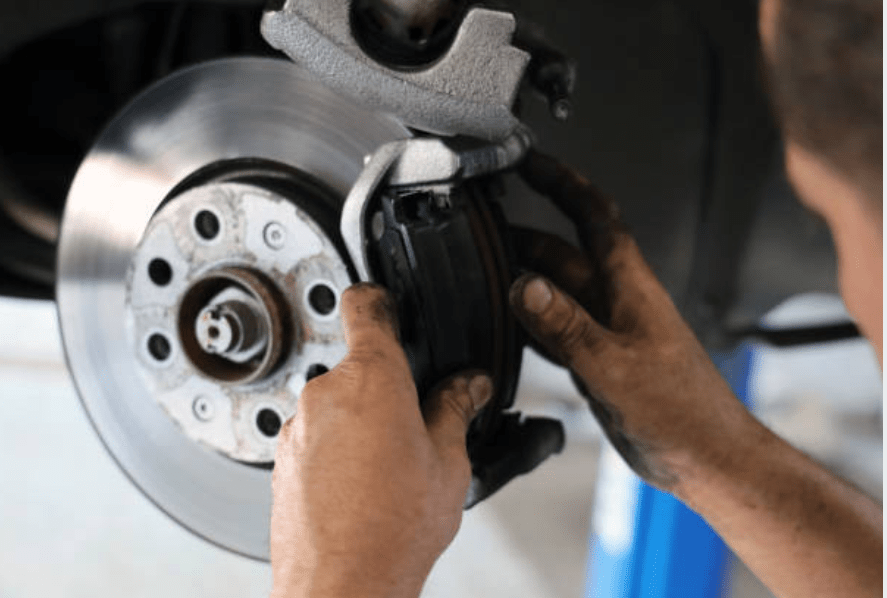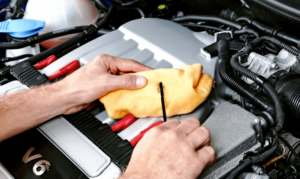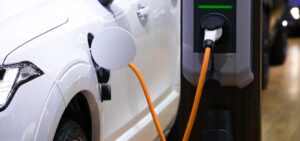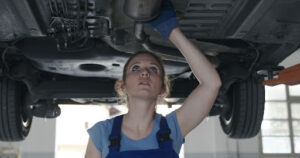Car brakes are some of the most overlooked auto components, especially by first-time owners. However, your car’s brakes have a crucial role in your vehicle’s performance and overall safety. Hence, they must be kept well-maintained and in excellent working condition all year round.
Knowing what brakes you have makes troubleshooting and servicing much more effortless. These are the most common braking systems in modern cars.
Outline:
- Different Types of Car Brakes
- Disc Brakes
- Drum Brakes
- Anti-Lock Brakes (ABS)
- Regenerative Brakes
- Electronic Braking System (EBS)
- Hydraulic Brake System
- Electric Trailer Brakes
- Conclusion
Different Types of Car Brakes
1. Disc Brakes
Most modern cars have disc brakes with a rotor attached to the wheel. This brake system has calipers, rotors, brake pads, and hydraulic fluid, which are crucial to bringing the vehicle to a stop.
When the driver steps on the brake pedal, hydraulic fluid is sent through the system to squeeze the calipers together, pushing down the brake pads to the rotor attached to the car’s wheel. The friction between the brake pads and the rotor slows down the wheels from spinning and brings the vehicle to a halt.
Disc brakes have been the preferred braking system since the 1950s because they generate plenty of stopping power and are easy to clean. They also manage heat better and allow better handling during rain or other wet conditions. However, disc brakes can be annoying, and their rotors are prone to rusting or warping.
2. Drum Brakes
Drum brakes are similar to disc brakes as both use hydraulic pressure and friction to stop or slow your car. However, instead of calipers, they have a small round drum that houses a set of brake shoes that presses against the side of the drums whenever you hit the brakes.
Some modern cars still use this in-wheel braking system, albeit mainly on the rear wheels. They are cheaper to replace and easier to maintain than disc brakes.
However, they have become the less popular option for two reasons. The interior of drum brakes can hold water inside, making them prone to rusting and corrosion. Furthermore, they overheat faster than disc brakes, resulting in less efficient stopping power.
3. Anti-Lock Brakes (ABS)
Newer car models often have anti-lock brakes that prevent the wheels from locking up and sliding during an abrupt hand brake. ABS systems utilize sensors on each wheel that monitor and regulate brake pressure to have similar speeds for all the wheels.
When the ABS sensor detects that one of the wheels has locked, it delivers pulses of brake pressure to that wheel to slow down the vehicle and assist you in regaining traction.
An ABS isn’t technically an actual type of brake but is a bunch of technology integrated into the braking system. This feature is quite helpful in improving the overall ride quality of the car and helps the driver maintain control during wet or snowy weather.
4. Emergency Brakes
Emergency brakes help keep your car stationary while it’s parked. However, you can also use them in emergencies if the primary brakes fail. These brakes are a separate system from the disc or drum brake systems.
Your emergency brake is connected to the main brakes of your vehicle through a similar cable. It is also known as a parking brake and can be activated through a button, foot pedal, or hand lever, depending on the car model you drive.

5. Regenerative Brakes
Regenerative Braking Systems (RBS) are often equipped in hybrid and electric vehicles. The car’s electric motor assists these brakes in powering or restricting the wheel’s rotation. Whenever the vehicle comes to a halt, the RBS absorbs the kinetic energy from braking and uses it to recharge the electric motor’s battery.
Pressing the brake pedal or taking your foot off the accelerator while cruising can cause regenerative braking. Although many electric vehicles still have hydraulic brakes, regenerative brakes do most of the work.
If you want to keep your regenerative brakes in pristine condition, make sure to get them checked or fixed by a hybrid repair specialist or a certified mechanic.
6. Electromagnetic Braking System
An electronic Braking System (EBS) is another feature of many hybrid cars. It uses electromagnets on each side of the rotor. When the brake is engaged, it creates a force in the spinning wheel’s opposite direction, slows down or stops the car.
The best thing about this brake system is that it doesn’t use any pads and thus does not need periodical replacement. They can also support heavier loads and stop cars from going at much higher speeds. However, it drains out power from the battery fast and isn’t as efficient when stopping at low speeds.
7. Hydraulic Brake System
Hydraulic brakes are pretty different from the previous systems since it uses hydraulic fluid to transfer the brake pedal’s force into the drum shoes or calipers via the master cylinder. Hence, engaging hydraulic brakes are faster than mechanical brakes since they have fewer parts.
Because of its unique design, hydraulic brakes have a lesser chance of failing when braking. However, removing the fluid leaks from the system can be pretty challenging. As a result, it can compromise the brake shoes or pads.
Hydraulic brakes are some of the hardest brake systems to fix and maintain. Thus, you need a car brake repair expert to address any related problems.
8. Electric Trailer Brakes
Electric trailer brakes service power from the tow vehicle and have a time-delay system that the driver can adjust. Meanwhile, some models have the tow vehicle control the brake power.
These brakes come with a safety circuit that allows the trailer to detach from the tow vehicle before the safety brakes engage to stop the trailer. Its system is similar to your typical drum brakes, where the shoes press against the rotating drum.
Meanwhile, it also has the same cons as the drum system, which tends to heat up fast, leading to brake fade.
Conclusion
Brake systems are the most critical safety feature in your car. Hence, keeping it in optimal condition will give you peace of mind whenever you drive.
Dependable Car Care offers a wide selection of brake repair services and is familiar with all car brakes above. Our certified mechanics are also equipped with the latest equipment to ensure we can address any car problem our clients present.
Contact Dependable Car Care and schedule an appointment today to prolong your car’s lifespan.





